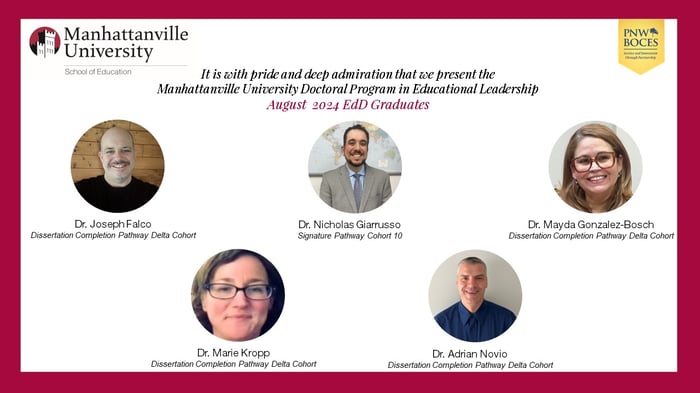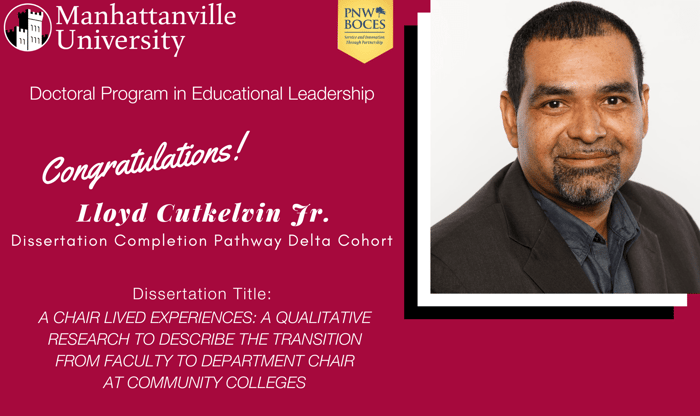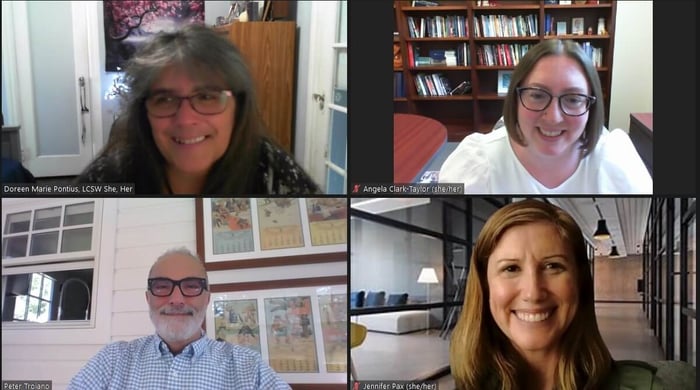AN INTERPRETIVE STUDY OF LGBTQ+ COMMUNITY COLLEGE STUDENTS’ SENSE OF BELONGING: AN ASSETS APPROACH
This interpretive inquiry aimed to understand how LGBTQ+ community college students perceive their sense of belonging and to identify effective strategies that affirm their identities. Using Strayhorn’s (2019) sense of belonging theory, the study revealed that supportive environments, both in and out of the classroom, enhance LGBTQ+ students' sense of belonging. Key factors include feeling accepted, supported, and connected. The findings highlight best practices for administrators, faculty, staff, and students to foster a positive sense of belonging for LGBTQ+ students across various campus settings.
A QUALITATIVE STUDY OF STUDENT PERCEPTIONS OF THE FACTORS INFLUENCING EDUCATIONAL LEADERSHIP (EDD) DOCTORAL DEGREE COMPLETION AND NON-COMPLETION
Doctoral programs face high attrition rates, with nearly 50% of candidates in North America not completing their degrees. While 93% of U.S. high school students graduate, only 2% of Americans earn a doctoral degree, and 44% of doctoral candidates drop out. This study aims to identify professional, personal, and program-related factors that influence EdD degree completion and non-completion, using a descriptive qualitative research design. Through extensive interviews with students from accredited U.S. institutions, this research seeks to provide updated insights into the factors impacting EdD program outcomes.
AN INTERPRETIVE INQUIRY TO UNDERSTAND FACULTY PREPAREDNESS TO TEACH COMMUNITY COLLEGE STUDENTS WITH LEARNING DISABILITIES
This qualitative study focuses on faculty preparedness to teach these students within their community college settings, using the Universal Design for Learning Theory and Practice (Meyers et al., 2014) as a guiding framework to explore the factors influencing faculty preparedness. The data were collected via semi-structured interviews with these community college faculty members from NY and NJ. The findings suggested that faculty preparedness was influenced by (a) faculty knowledge, (b) faculty positive attitude, and (c) implementation of inclusive strategies, highlighting all these elements as crucial for the success of the neurodiverse population. Practical recommendations are provided for community college leaders, professional development, and higher education degree programs, along with considerations for future research.
COMMUNITY COLLEGE TRANSFER ADVISORS' USE OF SELF: A QUALITATIVE STUDY THAT CONSIDERS CONCEPTS OF SELF AND CRITICAL REFLECTION
Public discourse highlights the challenges community college students face in attaining a bachelor's degree through vertical transfer. These broken transfer pathways disproportionately impact low-income and minoritized students, who are less likely to transfer to selective colleges despite demonstrating academic ability. Recognizing the role advisors play in supporting transfer student success, this qualitative study looked to understand how community college advisors cultivated practice that saw them considering power, privilege, and bias. Using Brookfield’s (2017) theory of critical reflection, this study considered how community college transfer advisors’ social identities (positionality) informed their advising interactions; fostered critical reflection in their advising interactions and understood its role in advancing social justice and emancipatory thinking.
ANALYZING THROUGHPUT RATE: ENHANCING DEVELOPMENTAL MATH STUDENTS' ACADEMIC PROGRESS
Developmental math courses have long been considered a barrier for students (Benken et al., 2015). This is especially true for minority and low-income students, who are disproportionately enrolled in developmental courses (Chen, 2016). Research has shown that various redesign efforts, such as multiple measures placement, corequisite support, and shortening or eliminating developmental courses, have improved throughput rates and the overall student experience (Boatman, 2012; Jaggars et al., 2014; Scott-Clayton et al., 2014; Sepanik, 2023). Drawing upon Vygotsky’s (1978) social development theory and the educational concept of ability tracking, this quantitative study aimed to determine the effect of a developmental math program redesign on the throughput rate of first-time, full-time students. The study found that the developmental math program redesign improved throughput rates for all students, regardless of sex, race, socioeconomic status, or degree of study.
Watch our Graduation Slideshow..
Take Your Career to the Next Level
Elevate your leadership skills, deepen your understanding of critical and contemporary education issues, and learn to help solve the current challenges in P-20 education.
Learn to Inspire Change
The Doctoral Program in Educational Leadership from Manhattanville, offered in partnership with Putnam Northern Westchester BOCES, utilizes a forward-thinking approach to educational leadership that is ideal for practicing and aspiring leaders in any educational context. It is designed to support the goals of educational professionals who seek to develop their leadership skills for career advancement or current job enhancement.




